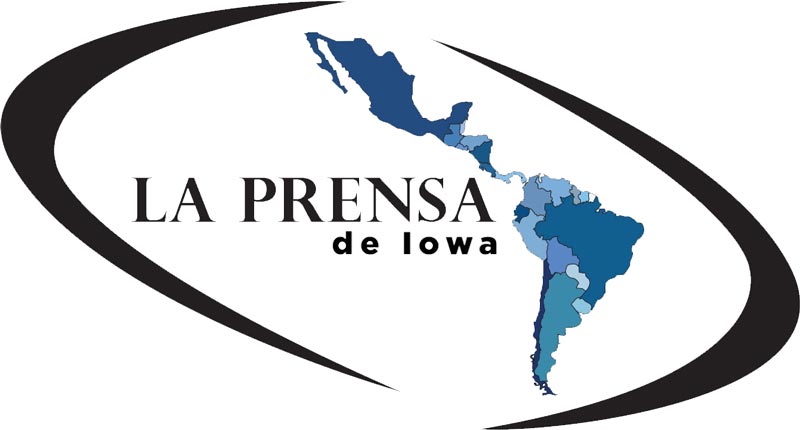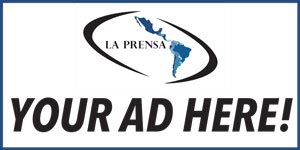CDC de Denison ofrece servicios de huellas digitales
/Evan Blakey, director ejecutivo del CDC, posando a un lado del equipo de escaneo. El equipo cuenta con tecnología para fotografía escaneo de huellas dactilares y escaneo de documentos I-9. Foto LA PRENSA Iowa
Ashley Martínez Torres
Especial para LA PRENSA Iowa
La Cámara y Consejo de Desarrollo del Condado de Crawford (Chamber & Development Council of Crawford County – CDC, por su nombre en inglés) se asoció con Fieldprint, es una de las pocas compañías autorizadas por el FBI para la recolección de huellas digitales, fotografía y documentos I-9 (Verificación para la Elegibilidad de Empleo).
El sistema de escaneo es conocido como digID mini+
El director ejecutivo del CDC Evan Blakley dijo, “En vez de tener que conducir hasta Des Moines, las personas que viven a los alrededores pueden venir a Denison para recibir estos servicios.”
Cuando una persona busca trabajar para el gobierno, este requiere que todo candidato potencial pase por una revisión de su historial criminal; una forma de investigar dicho historial es por medio de la recolección de fotografías y huellas dactilares. Evan explicó que, por medio de este sistema, se puede mandar y recibir cualquier información directamente de la base de datos del FBI.
Con la adquisición del equipo, el CDC espera que el uso de estos servicios atraiga a personas de hasta 60 millas a la redonda de la ciudad de Denison, y por ende beneficie la economía local. “Si las personas que viven afuera de Denison y van a requerir nuestros servicios de escaneo, quiere decir que van a necesitar llenar su tanque de gas o parar a comer en alguno de nuestros restaurantes, y hasta visitar otras tiendas o negocios locales.”
A pesar, de que al cierre de esta edición solo una persona se había presentado a usar los servicios de escaneo desde que el servicio se comenzó a ofrecer, a tres semanas desde que el CDC los comenzó a ofrecer, Evan dijo que espera que espera recibir más citas de requerimiento del uso del sistema.
Cabe agregar que la adquisición de este equipo fue algo que los representantes de Fieldprint sugirieron hace casi un año a la ciudad; sin embargo, los negocios locales que se contactaron no tenían el espacio disponible para el equipo o el tiempo para ofrecer otros servicios aparte de los propios, así que no fue hasta que el CDC cambio sus oficinas a un lugar mas amplio que Fieldprint al fin pudo encontrar un lugar donde instalar el equipo de escaneo.
El escáner digID mini+, el cual cuenta con una calidad de captura forense, se encuentra en la oficina de la Cámara y Consejo de Desarrollo del Condado de Crawford (CDC). Foto LA PRENSA Iowa
“Normalmente la compañía busca negocios como tiendas de celulares o que vendan algún servicio que involucre el uso de tecnología,” explicó. “Pero ningún negocio local estaba interesado en agregar los servicios de escaneo a su local. Pienso que muchos de ellos solo querían ofrecer sus servicios habituales o tal vez no se sentían cómodos con la responsabilidad que esto conlleva.”
Cabe agregar que cuando un negocio ofrece los servicios de Fieldprint, el establecimiento recibe un incentivo por cada persona que agende una cita, otra de las razones por la que la compañía buscaba que un negocio local ofreciera los servicios de escaneo.
Para agendar una cita, los interesados deben visitar la página www.fieldprint.com, crear una cuenta y seleccionar el lugar donde ir; una cita puede durar de entre 3 a 10 minutos, según explico Evan.
Este articulo es patrocinado por Western Iowa Journalism Foundation.
Translation
CDC in Denison Offers Fingerprint Collection Services for Government Employees
Evan Blakey, CDC executive director, posing next to the scanning equipment. The equipment counts with photography, fingerprint and I-9 document scanning. Foto LA PRENSA Iowa
Ashley Martínez Torres
Especial para LA PRENSA Iowa
The Chamber & Development Council of Crawford County (CDC) partnered with Fieldprint, one of the few companies authorized by the FBI for fingerprint, photography collection and I-9 document (employment eligibility verification) scanning.
The CDC office now counts with a digiID mini+ scanner; This device has forensic capture quality that serves to collect information through the Fieldprint system, one of the few companies authorized by the FBI for the collection of fingerprints, photography and I-9 documents (verification for employment eligibility).
"Instead of having to drive to Des Moines, people who live nearby can come to Denison for these services," said CDC Executive Director Evan Blakley.
When a person seeks to work for the government, it requires that every potential candidate go through a background history revision; One way to investigate such history is through the collection of photographs and fingerprints. Evan explained that, through this system, any data can be sent and received directly from the FBI database.
With the acquisition of this equipment, the CDC hopes that the use of these services will attract people up to 60 miles around the city and that this will benefit the local economy.
"If there are people coming from the outskirts of Denison, it means they're going to need to fill up their gas tank or stop for lunch at a restaurant, and maybe this invites them to explore other shops or businesses," he said.
Although only one person has shown up to use these services within three weeks since the CDC began offering them, Blakley says the CDC is expected to receive appointments more frequently in the long term.
The acquisition of this equipment was something that Fieldprint representatives suggested almost a year ago to the city; however, the local businesses contacted by the company didn't have the space available for equipment or the time to offer services other than their own. It wasn't until the CDC moved its offices to a larger location that Fieldprint was finally able to find a place to install the scanning equipment.
"Normally the Fieldprint looks for businesses like cell phone stores or involve some type of technological service," he explained. "But no local business was interested in adding scanning services to their location. I think many of them just wanted to offer their usual services or maybe they didn't feel comfortable with the responsibility that comes with it."
When a business offers Fieldprint’s services, the establishment receives an incentive for each person who schedules an appointment, another reason why the company sought to have a local business offering them.
To schedule an appointment, those interested must visit the www.fieldprint.com, create an account and select the place to go; an appointment can last anywhere from 3 to 10 minutes, Blakley explained.
This article is sponsored by the Western Iowa Journalism Foundation.
The digID mini+ scanner, which has a forensic capture quality, is located in the office of Chamber & Development Council of Crawford County. Photo LA PRENSA Iowa.










































